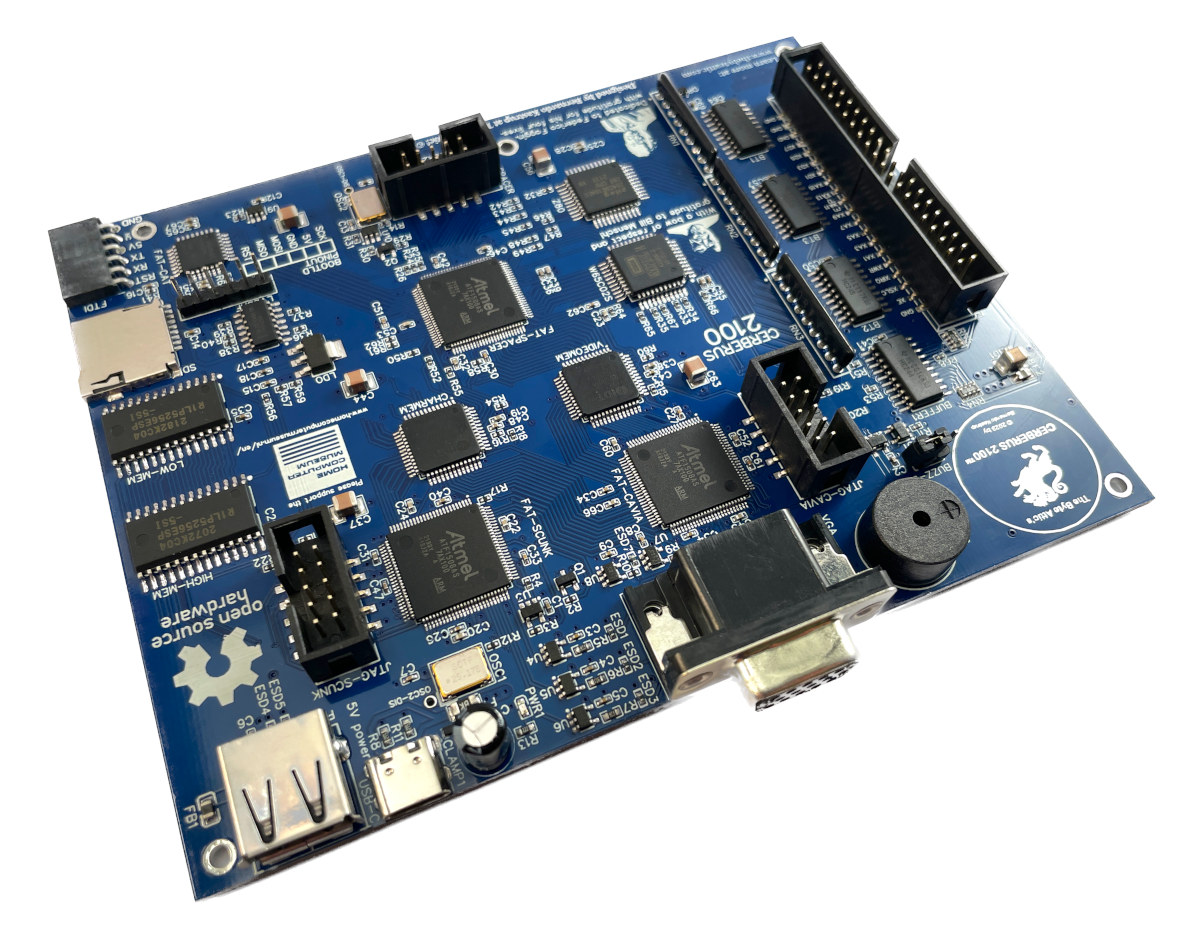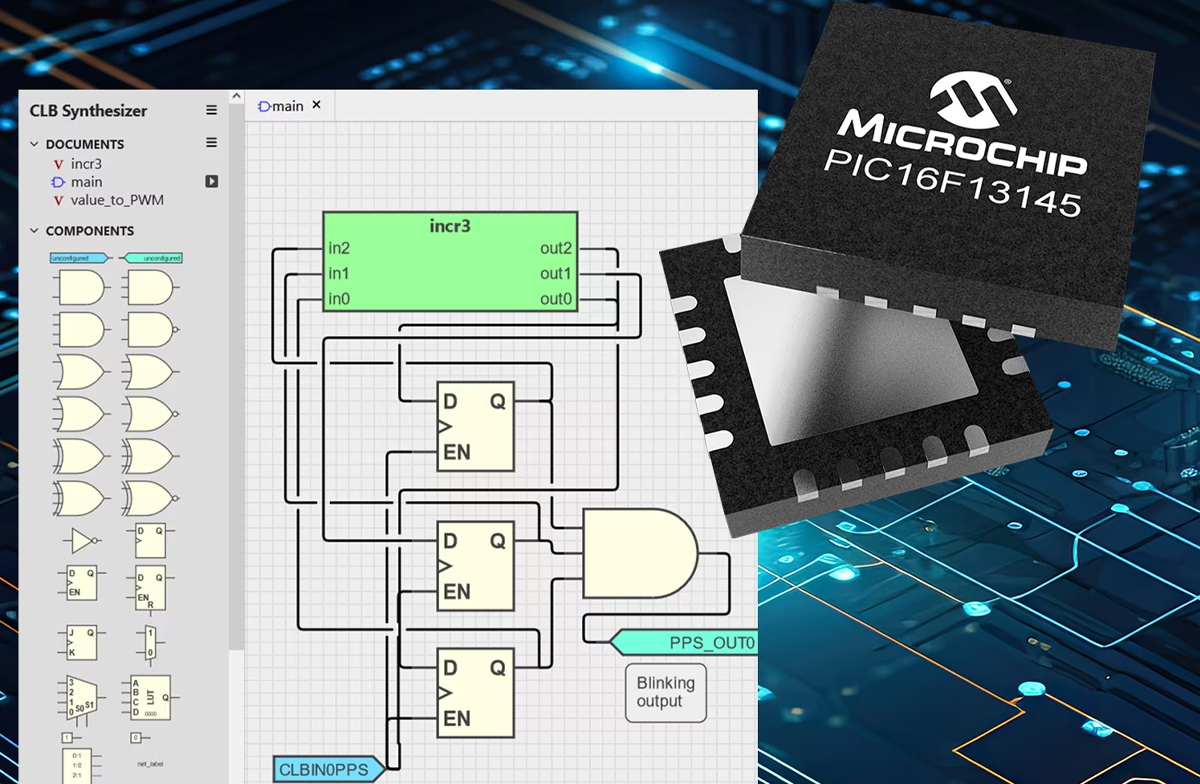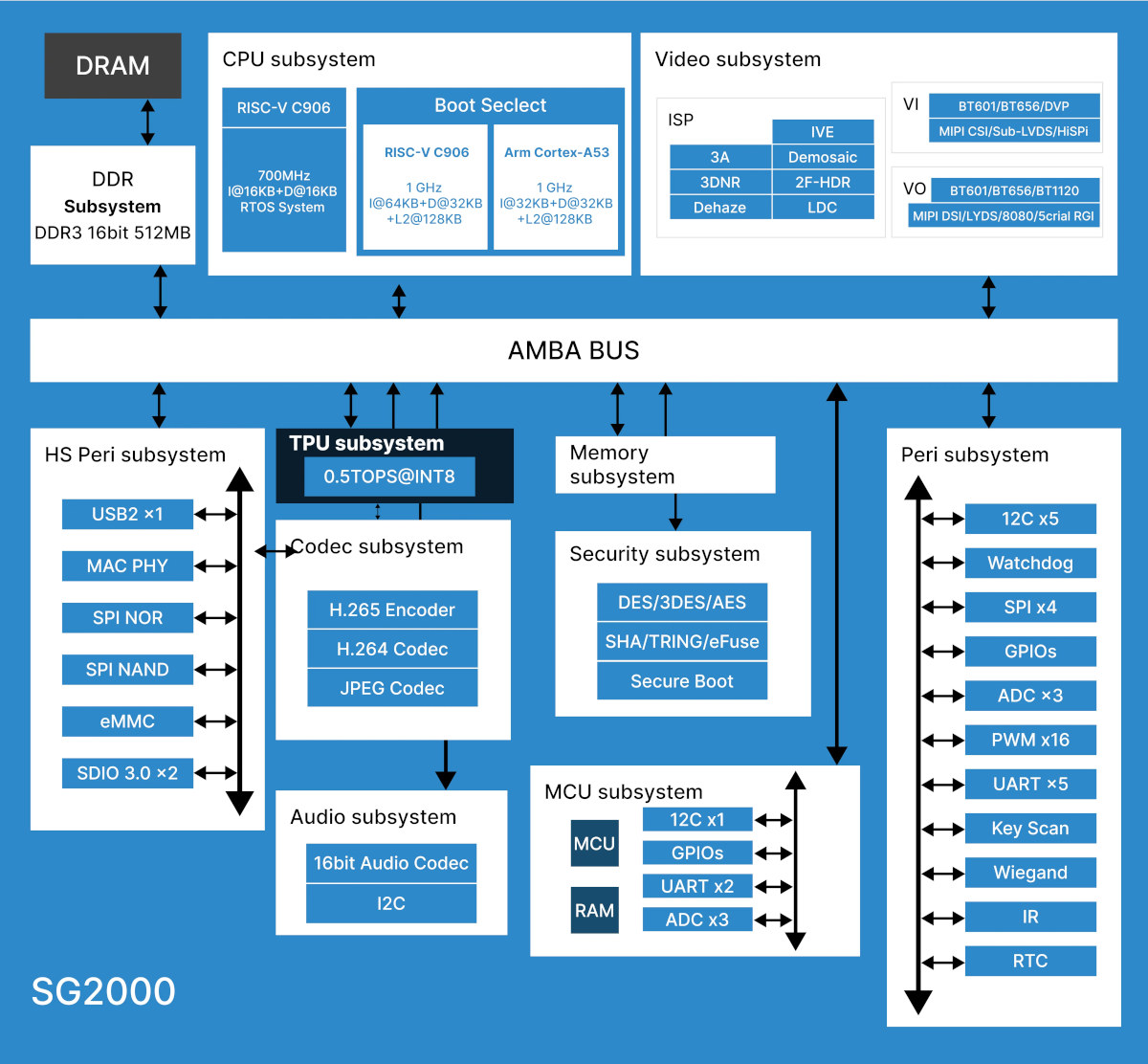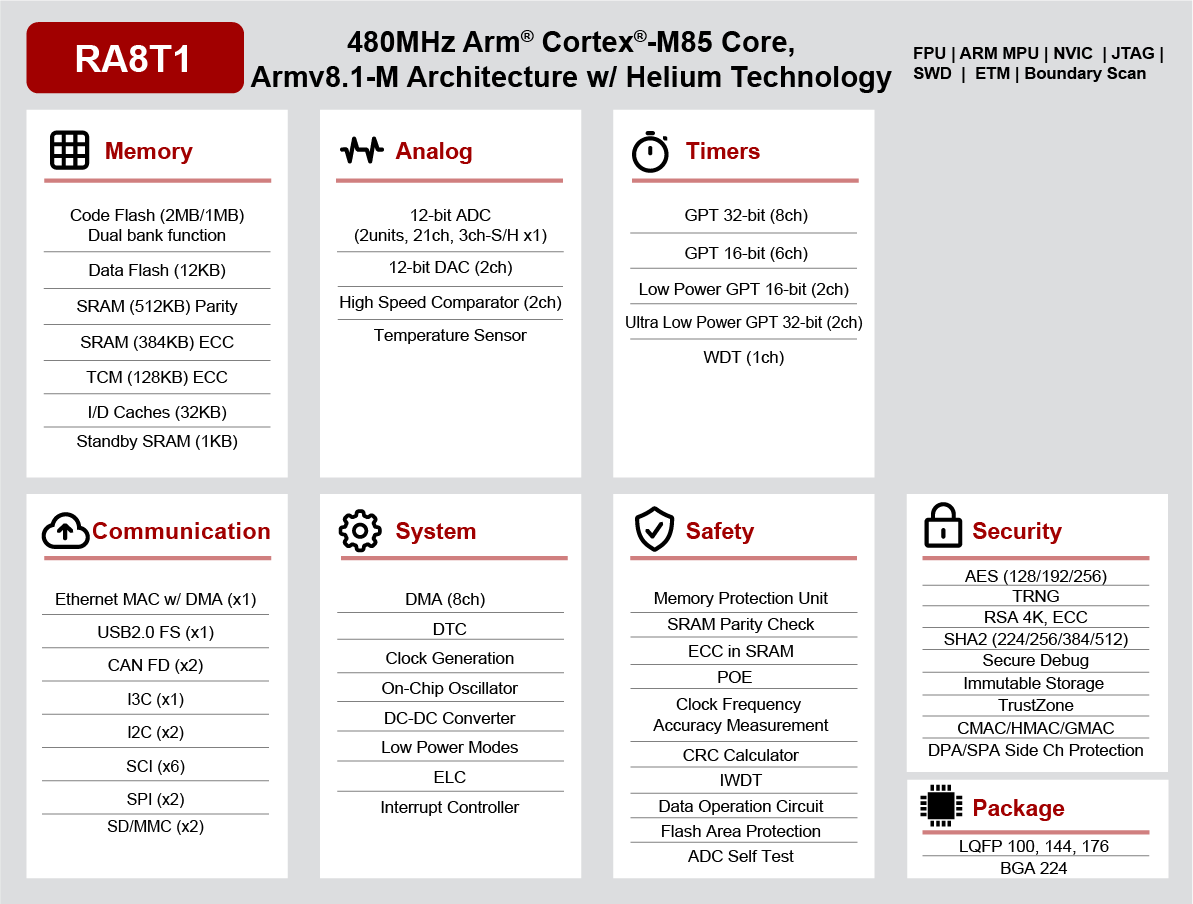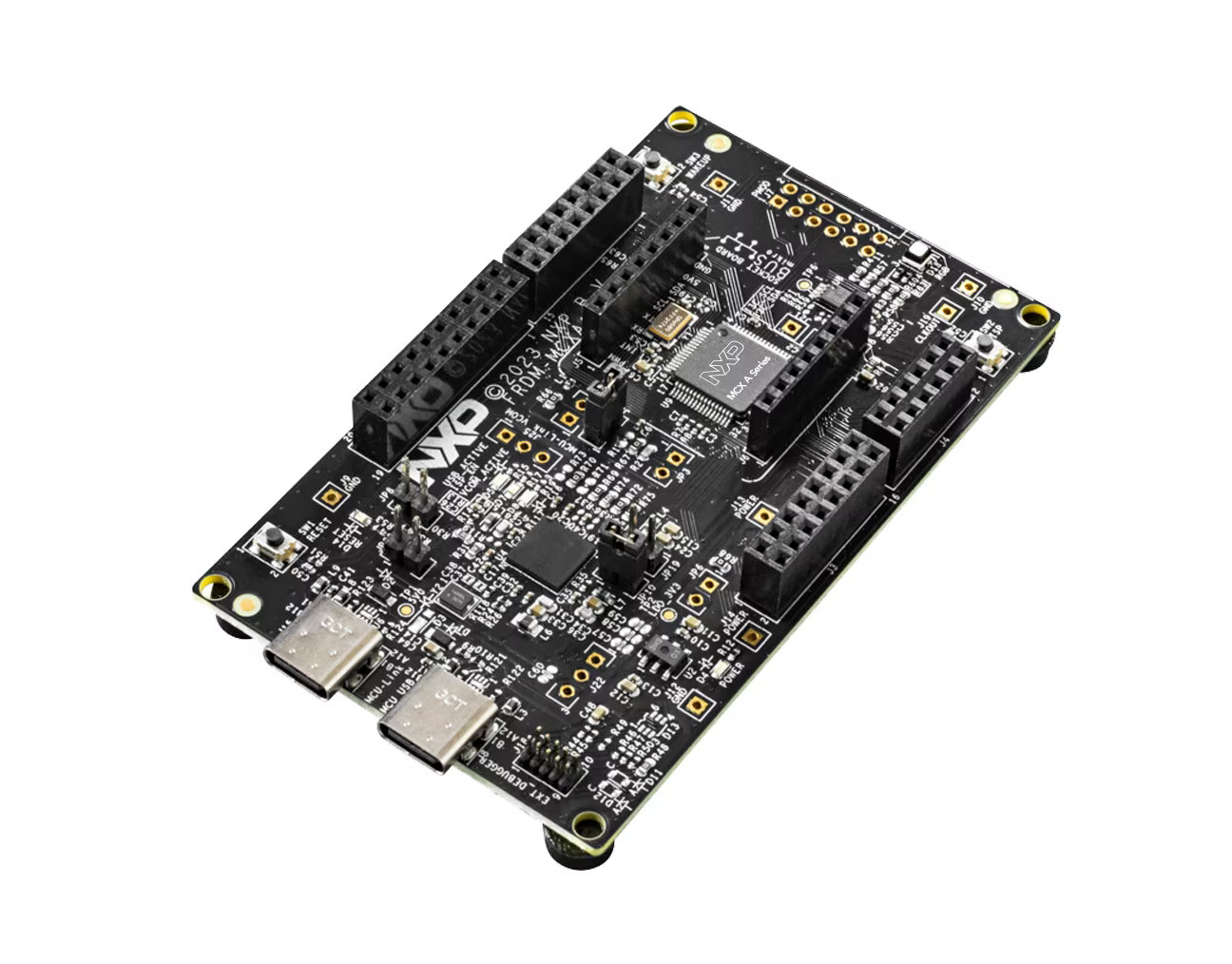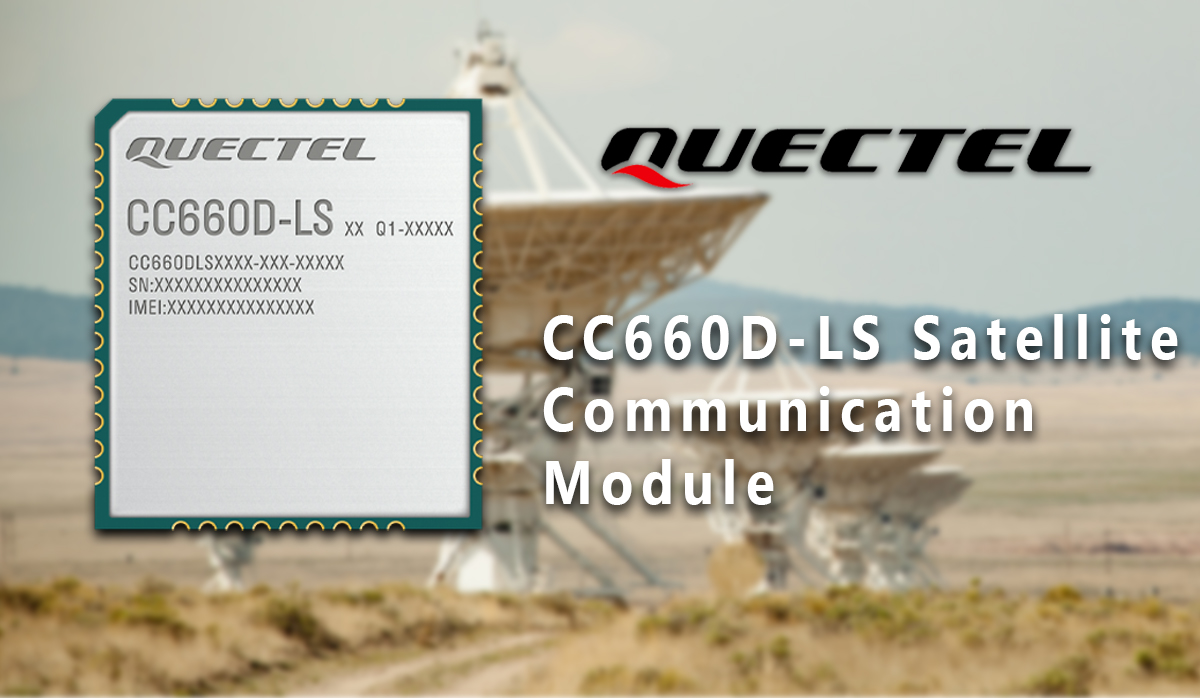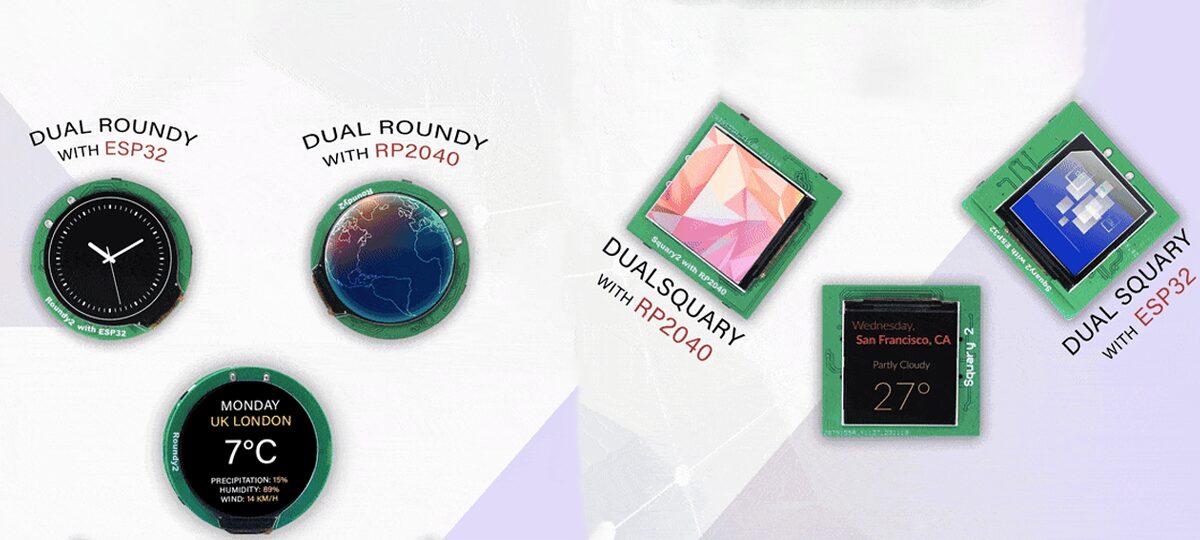Olimex has just announced the launch of the CERBERUS 2100 open-source hardware, educational, multi-processor 8-bit computer with both Z80 and 6502 CPUs, as well as a Microchip AVR processor serving as an I/O controller. The CERBERUS 2100 features several CPLD and is fully programmable from the lowest level (individual gates and flip-flops) up to BASIC interpreters running on the Z80 and 6502 CPUs. Olimex did not design this themselves as the hardware design is from Bernardo Kastrup (aka TheByteAttic), while BASIC interpreters were written by Alexander Sharikhin (6502) and Dean Belfield (Z80). CERBERUS 2100 specifications: Processors Zilog Z80 8-bit microprocessor at 4 or 8 MHz (user selectable) Western Design Center W65C02S 8-bit microprocessor at 4 or 8 MHz (user selectable) “FAT-CAT” (Custom ATmega328pb) Microchip 8-bit AVR ATMega328PB microcontroller at 16 MHz CPLDs (ATF1508AS-7AX100) FAT-SCUNK (Scan CoUNter and clocK) and FAT-CAVIA (ChAracter Video Adapter) for video circuit connected to a 25.175 […]
Microchip introduces PIC16F13145 Series MCUs with customizable logic
Microchip recently introduced the PIC16F13145 series of 8-bit MCUs featuring a Configurable Logic Block (CLB). This allows users to create custom hardware-based logic functions within the MCU. This approach lowers the BOM costs and boosts performance. Last year, we saw Microchip introduce PIC32CZ Arm MCU with a Hardware Security Module (HSM) and before that, we saw they launched LAN8650/LAN8651 10BASE-T1S single-pair Ethernet Controllers. Feel free to check those out if you are interested in the topics. Microchip PIC16F13145 Series MCU Specification: 32MHz PIC16 CPU core Up to 1KB User SRAM for application data Up to 14KB Flash memory with code protection features CLB Capabilities: Up to 32 basic logic elements – AND/OR/NAND/NOR gates, buffers/inverting buffers, D/JK flip-flops, multiplexers, 4-input LUT Dynamic configuration for on-the-fly changes Tri-state logic capability Inputs/outputs from software, I/O pins, and PIC® peripherals (ADC, PWM, DAC, etc.) Less than 6 ns BLE propagation delay at 5.5V (typical) […]
SOPHGO SG2000/SG2002 AI SoC features RISC-V, Arm, and 8051 cores, supports Android, Linux, and FreeRTOS
SOPHGO SG2000 and SG2002 are new SoCs featuring a bunch of RISC-V and Arm cores capable of running Linux, Android, and FreeRTOS simultaneously, and to maximize the fun an 8051 MCU core is also in the mix along with a 0.5 TOPS (SG2000) or 1 TOPS (SG2002) AI accelerator. More specifically we have one 1GHz C906 64-bit core capable of running Linux, one 1GHz Arm Cortex-A53 for Linux or Android, another 700 MHz C906 RISC-V core for FreeRTOS, and a 300 MHz 8051-core for real-time I/Os, as well as 256MB or 512MB SiP DRAM. The chip is designed for AIoT applications such as Smart IP cameras, facial recognition, and smart home devices. SOPHGO SG2000/SG2002 specifications: CPU cores 1x C906 64-bit RISC-V core @ 1GHz 1x C906 64-bit RISC-V core @ 700MHz 1x Arm Cortex-A53 core @ 1GHz MCU – 8051 8-bit microcontroller core @ 25 to 300 MHz with 6KB […]
Renesas RA8T1 Cortex-M85 MCU targets motor control applications
It took a while before Renesas released its first Arm Cortex-M85 microcontroller (RA8M1) in October 2023, but the company has now launched the RA8T1 Cortex-M85 MCU for motor control just a few weeks after announcing the RA8D1 for HMI applications. The RA8T1 group is the third Cortex-M85 microcontroller family from Renesas with a feature set optimized for motor control and leveraging machine learning through Arm Helium technology and a DSP for predictive maintenance requirements for motors. Renesas RA8T1 key features and specifications: MCU core – Arm Cortex-M85 clocked at 480 MHz with Helium MVE (M-Profile Vector Extension) with 32KB I/D caches, 12KB data flash Memory & Storage 1MB SRAM including 128KB TCM 1MB to 2MB Flash memory 2x SD/MMC host interfaces (SDHI) Communication interfaces Ethernet MAC with DMA USB – 1x USB 2.0 Full Speed interface 2x CAN-FD Up to 6x SCI (UART, Simple SPI, Simple I2C) 2x SPI up […]
NXP launches MCX A14x and MCX A15x Arm Cortex-M33 MCUs along with FRDM-MCXA153 development board
NXP has just announced the launch of the MCX A series Arm Cortex-M33 microcontrollers with the MCX A14x running up to 48 MHz and the MCX A15x running up to 96 MHz. The devices support up to 128KB flash and 32KB SRAM, offer I2C, I3C, and SPI sensor interfaces, and integrate support for BLDC/PMSM motor control. NXP first unveiled the NXP MCX general-purpose Arm MCU family with 30 times faster machine learning at Embedded World 2022, but at the time we had limited information although four series were planned with the MCX N Advanced series up to 250 MHz, the MCX A essential series up to 96 MHz, the MCX W Wireless series with Bluetooth LE, and the MCX L Low-power series. The MCX A series has just been launched, and the high-end MCX N also has its own product page with the N94x and N54x variants. We’ll focus on […]
Quectel CC660D-LS IoT-NTN module is built for Skylo’s satellite network
Quectel recently announced the launch of the Quectel CC660D-LS IoT-NTN module, created in partnership with Skylo. Designed for two-way IoT (Internet of Things) applications this model supports the latest 3GPP Release 17 standards for IoT over non-terrestrial networks (NTN). Additionally, It can operate on L-band (1 to 2 GHz), and S-band (2 to 4 GHz) frequencies, making it ideal for asset tracking, fleet management, and agricultural and maritime uses. Last year, we wrote about Qualcomm 212S and 9205S satellite modems which were also developed in collaboration with Skylo. Quectel CC660D-LS IoT-NTN Satellite Module Specifications: Module Type – NTN satellite communication module Compliance – Supports 3GPP Rel-17 IoT-NTN Frequency Bands – Operates on L-band (B255) and S-band (B256/23) Internet Protocols – Abundant embedded Internet service protocols Power Supply – Supports low voltage power supply from 2.2–3.6 V Power Consumption – Ultra-low power usage Sensitivity – Super-high sensitivity Temperature Range – Extended […]
SB’s Dual Roundy and Squary Displays are powered by RP2040 or ESP32-S3 microcontrollers (Crowdfunding)
SB-Components has launched Dual Roundy and Dual Squary display modules powered by Raspberry Pi RP2040 or ESP32-S3 microcontrollers. These compact modules feature a 6-DoF IMU, interchangeable displays, and multiple storage and connectivity options. The Dual Roundy is equipped with two 1.28-inch round displays, with a 240 x 240 resolution, and uses the GC9A01 display driver IC. In contrast, the Dual Squary features two 1.54-inch square displays with a 240 x 240 resolution but utilizes the ST7789 display driver. Both displays offer a choice between a Raspberry Pi RP2040 MCU and the ESP32-S3-WROOM-1 module catering to different needs in performance and wireless capabilities. We’ve previously explored other rounded displays like the MaTouch ESP32-S3, T-RGB ESP32-S3, and ESP32-S3 Round SPI TFT. We’ve also examined other products from SB Components such as the Cluster HAT, PiMecha, PiTalk 3G HAT, and Micro RP2040. Feel free to check these out for more interesting tech insights. […]
Arduino and Silicon Labs collaborate to bring Matter to Arduino boards and IDE
Arduino and Silicon Labs have joined hands to both bring Matter-compatible SiLabs wireless microcontrollers to the Arduino IDE and then design an upcoming Arduino Nano based on SiLabs MGM240 Arm Cortex-M33 microcontroller with Matter, Thread, Zigbee, and Bluetooth LE protocols. Available now: Arduino Core for Silicon Labs devices The first phase of the collaboration involves getting Arduino core for Silicon Labs development boards so that compatible devices can be programmed in the IDE. The good news is that it’s available now and works with four existing wireless boards: SparkFun Thing Plus Matter MGM240P based on MGM240PB32VNA Arm Cortex-M33 MCU with Matter, Thread, Zigbee 3.0, and Bluetooth 5.3 LE connectivity SiLabs xG27 Dev Kit based on EFR32BG27C140F768IM40 Arm Cortex-M33 MCU with Bluetooth LE 5.3, Bluetooth Mesh, Proprietary 2.4 GHz connectivity SiLabs xG24 Explorer Kit based on EFR32MG24B210F1536IM48 Arm Cortex-M33 MCU with Bluetooth 5.3 LE, Bluetooth Mesh, Matter, OpenThread, Zigbee, Proprietary 2.4 […]


